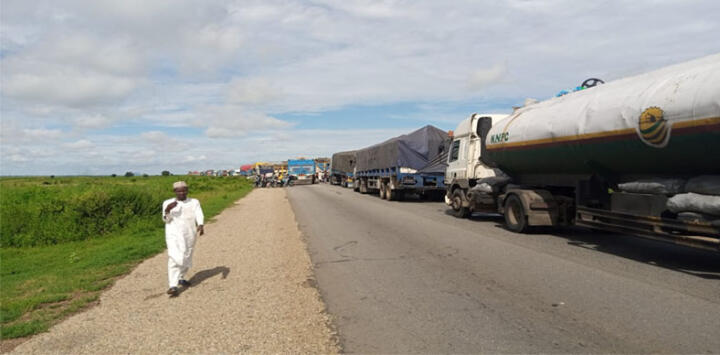A rift has emerged between the federal government and tanker drivers over the enforcement of a ban on 60,000 unfit trucks operating across the country. The government’s decision to take unsafe petroleum tankers off the roads has sparked resistance from the drivers’ union, which argues that the move could lead to job losses, fuel distribution disruptions, and economic hardship for thousands of workers.
The federal government, through regulatory agencies, has insisted that the ban is necessary to improve road safety, reduce accidents, and prevent environmental hazards caused by faulty petroleum tankers. Officials have cited numerous incidents of fuel tanker crashes, which have resulted in fatalities, property damage, and prolonged traffic congestion on major highways. The government maintains that enforcing stricter vehicle safety standards is long overdue and aligns with broader efforts to modernize Nigeria’s transportation infrastructure.
However, tanker drivers, under the umbrella of their union, have pushed back against the decision, arguing that the sudden enforcement of the ban will cripple fuel supply chains and negatively impact the economy. They contend that many of the trucks deemed unfit could still be repaired and maintained for safe operations, rather than being taken off the roads entirely. The union has also criticized the lack of a clear transition plan, stating that many operators lack the financial capacity to replace their aging fleets with new vehicles.

Negotiations between the two sides have so far been tense, with tanker drivers warning of potential strikes or fuel distribution disruptions if a resolution is not reached. They have called for a phased implementation plan that would allow truck owners time to upgrade their vehicles, along with financial support mechanisms such as government-backed loans for fleet renewal.
Stakeholders in the petroleum and transport industries have expressed concern over the standoff, warning that a hasty enforcement of the ban could lead to fuel shortages, higher transportation costs, and inflationary pressures. Some industry experts have urged the government to explore alternative solutions, such as enforcing periodic vehicle inspections, offering incentives for new truck purchases, and improving road infrastructure to accommodate safer transport of petroleum products.
As discussions continue, all eyes are on how the federal government will balance road safety concerns with the economic realities facing tanker drivers and fuel distributors. A compromise that ensures safer roads while sustaining fuel supply operations will be critical in resolving the ongoing dispute.
Support InfoStride News' Credible Journalism: Only credible journalism can guarantee a fair, accountable and transparent society, including democracy and government. It involves a lot of efforts and money. We need your support. Click here to Donate
